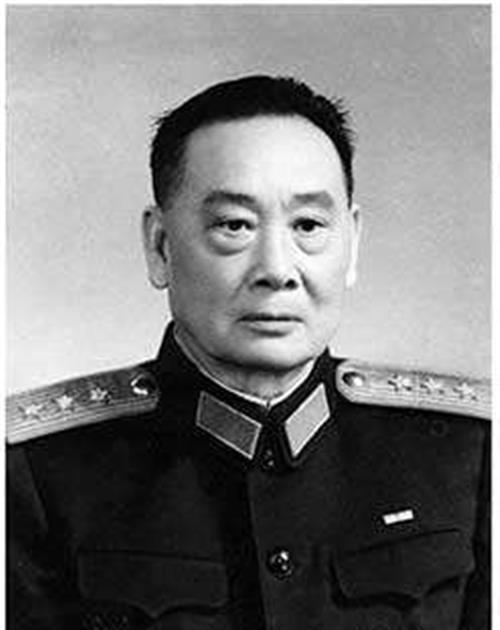In an organization such as the military that requires obedience and superior-subordinate relations, rank is a crucial point in the management of the army, which is not only a matter that can reflect the honor of a soldier. Before 1955, due to material conditions and other factors, the People's Liberation Army had not been able to implement the rank system, and it was not until 1955 that the first rank was officially awarded.
This year is destined to be the year that will shine with stars. In addition to the ten marshals and ten generals, there were 55 generals, 175 lieutenant generals, and 800 major generals, and among these 55 generals, there were three people whose identities were somewhat special, because these three were the rebel generals of the Kuomintang army, that is, Tao Zhiyue, Chen Mingren, and Dong Qiwu.

Tao ZhiYue
Tao Zhiyue was born in 1892 in Ningxiang, Hunan. Born in the Xiang Army in his early years, he was already the commander of the 3rd Brigade of the Independent 2nd Division of the National Revolutionary Army during the Northern Expedition, and his qualifications were relatively old. In fact, Tao Zhiyue's uprising was completely expected, and his people were very supportive of our side during the War of Resistance Against Japan, and resolutely supported our initiative of "opposing the civil war and unanimously resisting Japan." He participated in the Battle of Songhu and was later stationed in Shaanxi for a long time.
In 1943, Tao Zhiyue was transferred to Jiuquan as the commander-in-chief of the Hexi Garrison, and after the victory of the Liberation War, he became the chairman of Xinjiang Province, the commander-in-chief of the Xinjiang Garrison, the deputy chief of the Northwest Chief Executive's Office, and under the clouds of the civil war, he assisted Zhang Zhizhong, a well-known patriot in the Kuomintang, to release a large number of our detainees and progressives.
In the later stages of the civil war, Tao Zhiyue did not want to participate in the civil war, and refused to enter the customs war by delaying in every way, and finally on September 25, 1949, he overcame all difficulties and led more than 100,000 uprisings, making a very important contribution to the peaceful liberation of Xinjiang.
In 1955, Tao Zhiyue was awarded the rank of general, and he died in 1988 at the age of 97, an extremely long life.
Chen Mingren
Chen Mingren's weight among the many rebel generals of the Kuomintang was very heavy, not only because he was the commander of the corps, but also because he was a rare military talent in the Kuomintang at that time.
Chen Mingren graduated from the Huangpu Phase I, but he was upright and stubborn, and did not give the old Jiang face at all, so he could not fly like Du Yuming, who was also the Huangpu Phase I, but his combat ability was really powerful. In the War of Resistance Against Japan, the battle he commanded to conquer Huilongshan can be said to be a rare classic battle of the Nationalist army in the War of Resistance Against Japan. Chen Mingren was the commander of the 71st Army at that time, and with the cooperation of the US army, Chen Mingren fought with infantry, artillery, and air, and defeated the Japanese army with tactics of attacking the west and moving.
In the Liberation War, Chen Mingren led his troops to fight in the northeast, which made the Northeast Democratic Coalition Army suffer a lot, and the bloody battle of Siping made the Northeast Field Army remember deeply, until the eve of the Liaoshen Campaign, when they did not dare to go south to Jinzhou to fight, they were afraid of repeating the mistakes of Siping. However, because of the factional struggle within the Kuomintang, Chen Mingren, a hero of the bloody war and four peaces, was actually dismissed from his post on the grounds that his subordinates were grabbing grain and transferred to the Nanjing Presidential Palace to join the army.
Later, he was transferred to the deputy commander-in-chief of the "Suppression General" in central China, the commander of the Wuhan garrison and the commander of the 29th Army, the commander of the 1st Corps, and later transferred to the commander of the Changsha garrison. During his time in Wuhan and Changsha, Chen Mingren was deeply influenced by Cheng Qian, a peace-loving elder figure in the Kuomintang, and had the idea of an uprising.
In August 1949, he led an uprising with Cheng Qian and remained the commander of the corps.
He was awarded the rank of general in 1955 and died in Beijing in 1974 at the age of 71.
Dong Qiwu
Dong Qiwu was born in Fu Zuoyi's department, as early as before the outbreak of the all-out War of Resistance, he had already begun to fight against the Japanese army, participated in the famous Great Wall War of Resistance and Suiyuan War of Resistance, after the outbreak of the all-out War of Resistance, Dong Qiwu fought with the Japanese army for a long time in North China, participated in the Battle of Xinkou, the Battle of Taiyuan, the Battle of Baotou, the Battle of Suixi, the Battle of Wuyuan and many other large-scale operations against Japan.
After the outbreak of the War of Liberation, Dong Qiwu and most of the Kuomintang generals were absolutely different; he not only resolutely opposed the civil war, but also carried out construction and ideological propaganda in Suiyuan (now part of Inner Mongolia) Province in accordance with the way of the Liberated Areas, propagated progressive ideas, and banned all reactionary organizations (including military unification and central unification secret service organizations) in the territory.
After the peaceful liberation of Peiping, with the help of Fu Zuoyi and Deng Baoshan, Dong Qiwu successfully led his troops to revolt in Suiyuan.
In 1955, Dong Qiwu was awarded the rank of general and died in 1989 at the age of 90.